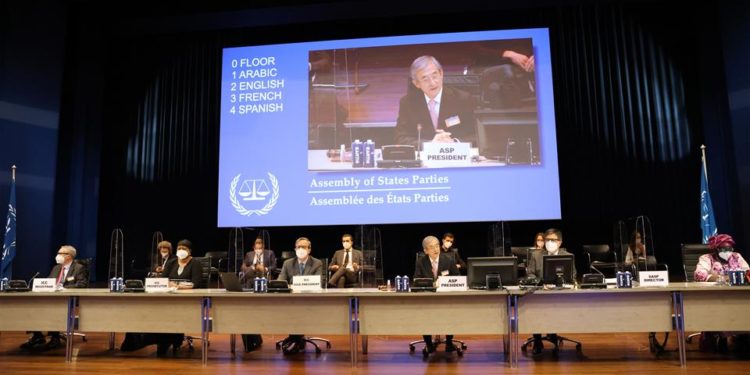The Bureau of the Assembly of States Parties (ASP) met in vain for more than two hours today (February 5th) to try and identify a consensus candidate to succeed Fatou Bensouda as chief prosecutor of the ICC in June. Consultations will go on during the weekend, diplomatic sources in the meeting have told JFJ. The full ASP is scheduled to meet in New York on Monday to elect the new head of the OTP (Office of the Prosecutor).
The Bureau is kind of a “steering committee” of the ASP, expected to make a proposal agreeable to all member states. The ASP is the assembly of the 123 states parties to the Rome Statute, the founding treaty of the International Criminal Court. The ASP is scheduled to meet at UN headquarters on Monday.
States have been at pains for many months to find a consensus candidate. According to the latest information from diplomatic circles, Karim Khan (UK) is the front runner in the race now, closely followed by Fergal Gaynor (Ireland). Also under serious consideration is Carlos Castresana from Spain.
The problem is that against every candidate there are one or more possible objections. He may be considered too close to those in power in one of the “situation countries” where the ICC investigates and prosecutes atrocity crimes; he may be considered as lacking the necessary leadership experience to head a big organisation like the ICC OTP; or he may be considered as not having the necessary experience with diplomatic relations. This is important because the ICC needs the support of states, both to obtain the necessary financial means for its existence and to ensure political backing to obtain the arrest of fugitives, as the court has no police force of its own.
Must the court get a perfect Prosecutor? Diplomats admit that objections can be raised against every candidate – “but objections should not become a veto, otherwise we don’t get anywhere,” one says.
Other diplomats propose to postpone the scheduled New York ASP meeting on Monday and take more time to find the best candidate. They do not want to accept the pressure from those who point out that Bensouda’s term of office expires in June. “The ICC has a deputy prosecutor and can do without a chief prosecutor for a while,” one says.
There is a precedent for such a situation. When the UN Security Council decided in 1993 to establish the International Criminal Tribunal for the Former Yugoslavia (ICTY), the first chief prosecutor, Ramón Escovar Salom, only came to The Hague for a few days and then left for home (Venezuela) again – because it is always raining and windy in Holland, some quipped. “The only thing he did”, some joked, was that he appointed a deputy prosecutor, Graham Blewitt, with war crimes prosecution experience in his native Australia. Many credit him with good institution building at the ICTY OTP, without a chief prosecutor, before, after many months of interregnum, the Security Council accepted Nelson Mandela’s proposal to second Richard Goldstone.







